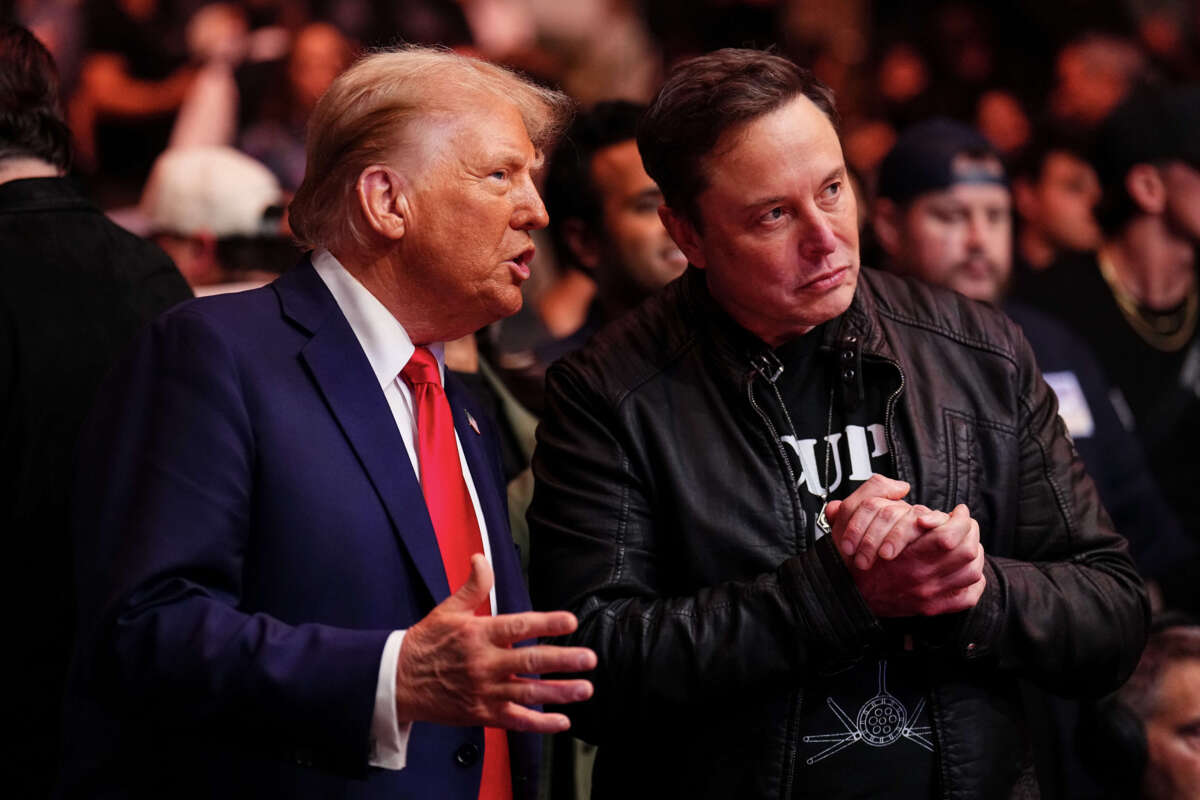Elon Musk on Wednesday called for the elimination of the Consumer Financial Protection Bureau, an agency that was founded in 2010 with a broad mandate to protect Americans from unfair and predatory financial practices.
“Delete CFPB,” Musk wrote in an X post Wednesday morning, calling the Federal Reserve-funded agency an example of “too many duplicative regulatory agencies” in the federal government. That reasoning has been questioned by numerous experts, who note that the CFPB was founded precisely because none of the overlapping financial watchdogs at the time focused on consumer protection.
“But there’s no reason to think facts or evidence have anything to do with Musk’s views,” Robert Weissman, co-president of consumer advocacy group Public Citizen, said in a statement. “Asking the world’s richest person, with a direct interest in a wide range of business lines, to run a project to review the federal government’s overall operations is absurd and fundamentally corrupt — and this issue highlights exactly why.”
Musk’s opinions on government reorganization carry more weight now that he has been appointed co-leader of the so-called “Department of Government Efficiency” by President-elect Donald Trump with a charge to cut federal spending across the board — with as little input from Congress as possible.
The billionaire owner of SpaceX did not specify why he objects to the CFPB, but it has often incensed the nation’s most powerful banks, credit unions, debt collectors and other financial entities. And Musk takes advice from other wealthy members of Trump’s circle like venture capitalist Marc Andreessen, who earlier this week accused the CFPB of “terrorizing financial institutions” in an appearance on Joe Rogan’s podcast.
Andreessen’s firm has supported a number of technology companies that have run afoul of the CFPB, including a LendUp Loans, which the agency shuttered in 2021 on the grounds that it misled customers about its loan policy and overcharged military service members. The CFPB distributed nearly $40 million to consumers who had borrowed from that company. That’s a fraction of the $19.6 billion in compensation, canceled debts and other kinds of relief that the CFPB has secured since its founding in wake of the 2008 financial crisis.
Under President Joe Biden, CFPB director Rohit Chopra has issued rules that would require banks to give consumers their financial data free of charge, shield consumers from medical debt and limit overdraft fees. Last week, the agency finalized a rule to scrutinize tech companies dealing with digital funds, a business where Musk is expanding his own footprint. In response to CFPB oversight, many large companies have sued the agency, complaining that it had exceeded its legal authority.
Musk’s desire to eliminate the CFPB echoes calls by Trump’s former aides who were involved with the Heritage Foundation’s Project 2025. But even if Musk fails in this objective, Trump has other ways to render the CFPB impotent. Many of his top aides are looking for candidates to lead the agency that would rescind recent rules, cancel investigations and soften its enforcement. During Trump’s first term, the CFPB under then-interim Director Mick Mulvaney, struck down rules targeting payday lenders, cancelled a number of lawsuits and requested a budget of zero dollars from the Federal Reserve.
We’re not backing down in the face of Trump’s threats.
As Donald Trump is inaugurated a second time, independent media organizations are faced with urgent mandates: Tell the truth more loudly than ever before. Do that work even as our standard modes of distribution (such as social media platforms) are being manipulated and curtailed by forces of fascist repression and ruthless capitalism. Do that work even as journalism and journalists face targeted attacks, including from the government itself. And do that work in community, never forgetting that we’re not shouting into a faceless void – we’re reaching out to real people amid a life-threatening political climate.
Our task is formidable, and it requires us to ground ourselves in our principles, remind ourselves of our utility, dig in and commit.
As a dizzying number of corporate news organizations – either through need or greed – rush to implement new ways to further monetize their content, and others acquiesce to Trump’s wishes, now is a time for movement media-makers to double down on community-first models.
At Truthout, we are reaffirming our commitments on this front: We won’t run ads or have a paywall because we believe that everyone should have access to information, and that access should exist without barriers and free of distractions from craven corporate interests. We recognize the implications for democracy when information-seekers click a link only to find the article trapped behind a paywall or buried on a page with dozens of invasive ads. The laws of capitalism dictate an unending increase in monetization, and much of the media simply follows those laws. Truthout and many of our peers are dedicating ourselves to following other paths – a commitment which feels vital in a moment when corporations are evermore overtly embedded in government.
Over 80 percent of Truthout‘s funding comes from small individual donations from our community of readers, and the remaining 20 percent comes from a handful of social justice-oriented foundations. Over a third of our total budget is supported by recurring monthly donors, many of whom give because they want to help us keep Truthout barrier-free for everyone.
You can help by giving today. Whether you can make a small monthly donation or a larger gift, Truthout only works with your support.
